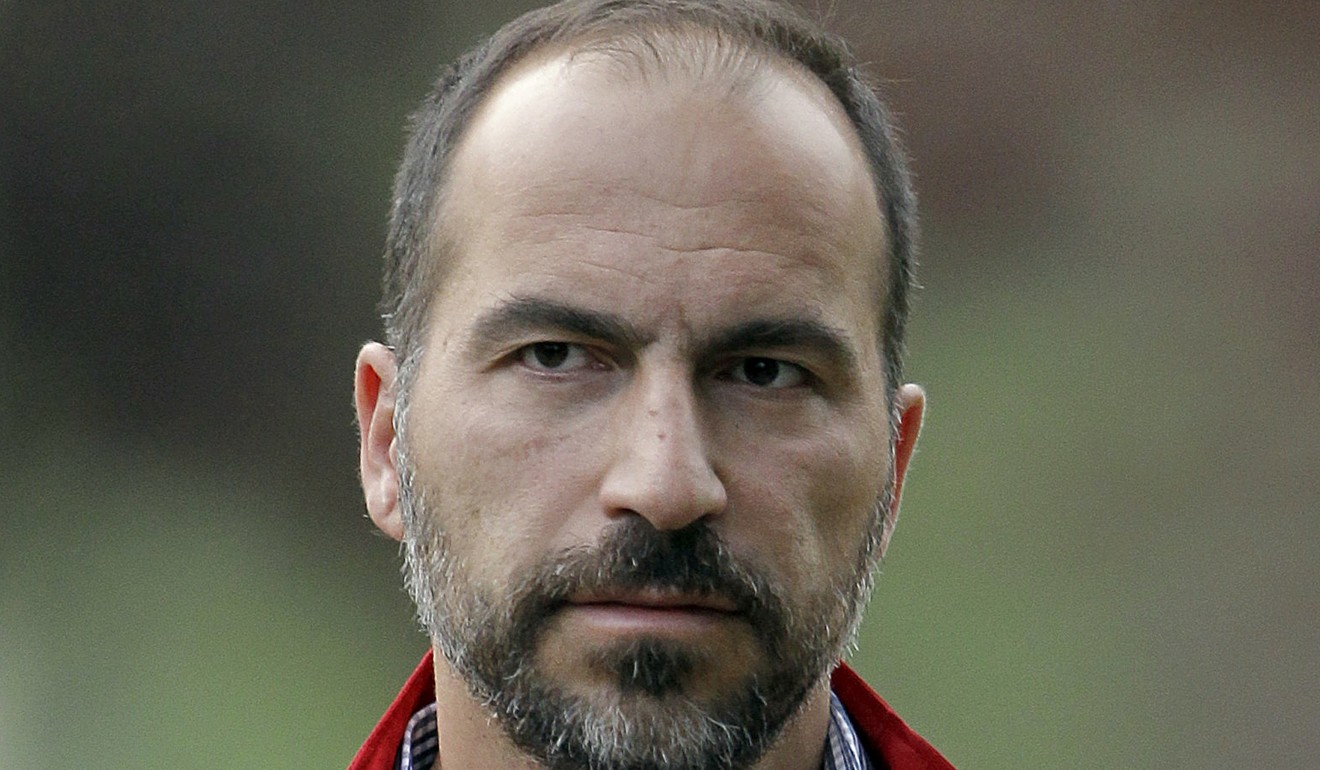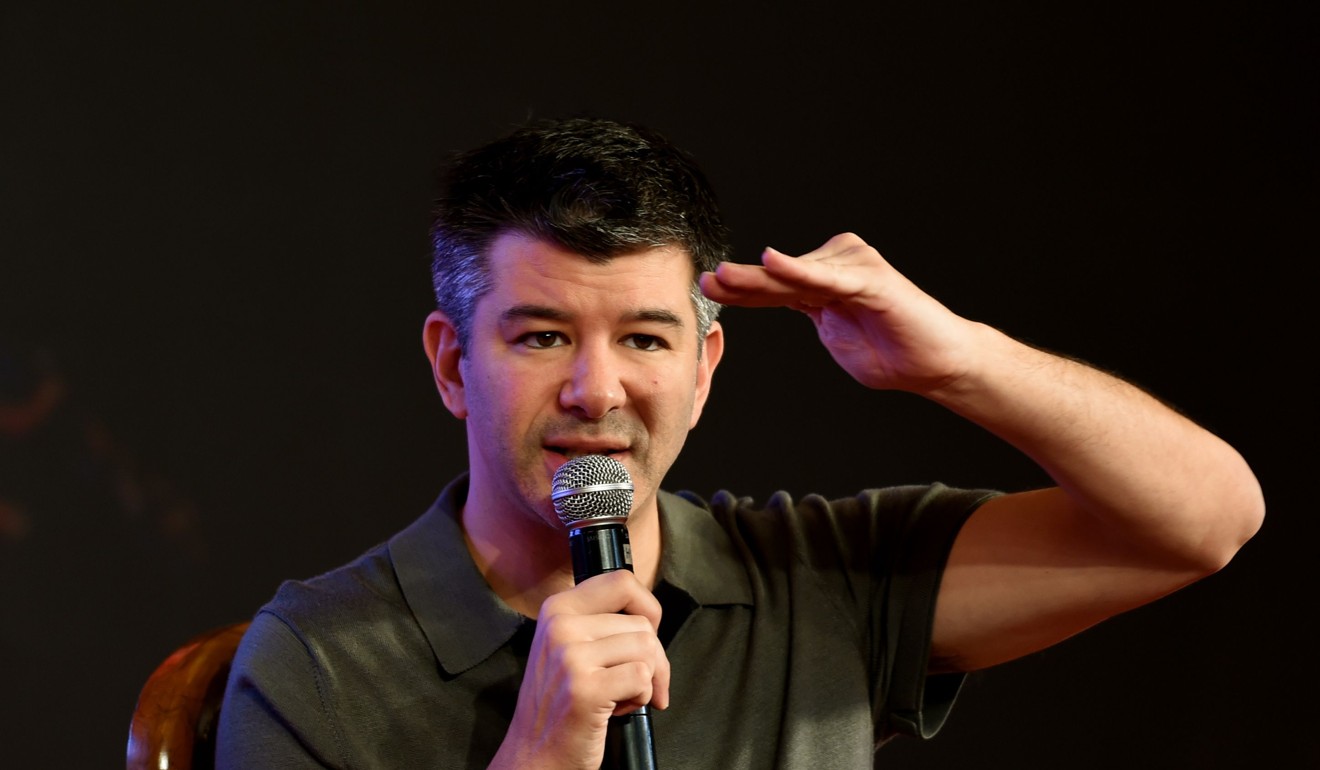
Uber’s new CEO will face this one major challenge
‘At Uber not only will the transition not be clean but the battle lines have already been drawn’
Good luck to Dara Khosrowshahi who has just taken over as chief executive at the car hailing app company Uber. He will need all the luck he can muster to clean up the mess left by his predecessor Travis Kalanick who is not only still very much around but also retains a substantial shareholding.
The mess is multifaceted ranging from problems of stemming Uber’s enormous losses, getting its IPO off the ground, to sorting out a host of legal challenges to its operations in many places, including Hong Kong, and then there’s the toxic legacy of Kalanick's abusive management style with allegations of sexual harassment and a whole lot more. As Warren Buffett recently observed, when addressing the problems at Wells Fargo Bank, “there’s never just one cockroach in the kitchen when you start looking around”.
So who knows what other cockroaches Khosrowshahi will unearth and can he really be expected to successfully clean up? If this was any kind of normal boardroom succession it could be said that he is well placed to do the job.

This is the man who won many plaudits for his work at the travel website Expedia where he marshalled its listing, he is clearly tech savvy and, perhaps most importantly, is the antithesis of Kalanick in terms of his cool demeanour and diplomatic way of handling people.
But normal is not a word that sits easily with what’s happening at Uber. Indeed his selection as the dark horse candidate for the post hardly came without controversy, not least within Uber’s board where Kalanick is still a presence and is fighting to retain a management role.
There was a great deal of shareholder pressure to remove Kalanick from all involvement in management but last week he won a court battle aimed at achieving precisely this end. It failed because the court decided that private arbitration would be a more appropriate way of handling this matter.
Kalanick had been somewhat contrite when scandals involving his management style first came to light but he is far less contrite now and, perhaps understandably, takes the view that a bunch of jumped up assertive shareholders did not build Uber as he did and lacked the vision that transformed a good idea into a business valued at some US$60 billion that has had remarkable success in shaking up what used to be known as the taxi business.
And here’s the rub because Kalanick is not wrong about his founder’s role and he is still very much on the scene as his successor attempts to take the reins and run things his way. Unlike Kalanick, Khosrowshahi will be a hired hand with no substantial equity stake in the company and he will be working with a large number of senior colleagues leftover from his predecessor’s regime, many of whom owe personal allegiance to their former boss and quite liked the way he ran things.
A big stack of management theses are out there to help the new CEO study ways of digging Uber out of its current mess. They come complete with all manner of fancy charts, bullet points and sage-sounding theoretical models. Some of this stuff might even be useful but the bottom line is littered with the personalities of the main players and is far messier.

As night follows day a clash looms between the old and new CEO. One of the reasons most companies move the previous incumbent out of the picture is because they fear second-guessing, conflicting loyalties and a host of other problems that arise when there is not a clean transition.
At Uber not only will the transition not be clean but the battle lines have already been drawn. Optimists say that Khosrowshahi is battle hardened after mediating disputes between the super egos of Allen & Co’s Barry Diller and John Miller from Liberty Media, both of whom sat on Expedia’s board while they were battling each other in the courts over another matter.
Placing too much reliance on this experience seems to be a case of grasping at straws because in current circumstances Khosrowshahi will not be playing the role of the middleman but that of the person in the direct firing line.
And he can expect little assistance from text book management advice which, at best, will only be marginally helpful because what this situation clearly demonstrates is that even large and complex companies have their fate determined by the complexities of interpersonal relationships than can be kept in check by well formulated systems but few systems are robust enough to restrain the onslaught of a determined disrupter – a title that fits Travis Kalanick almost perfectly.
Even if Khosrowshahi prevails, what toll will be inflicted on Uber by the effort devoted to fighting what are in effect power battles?
Stephen Vines runs companies in the food sector and moonlights as a journalist and a broadcaster

